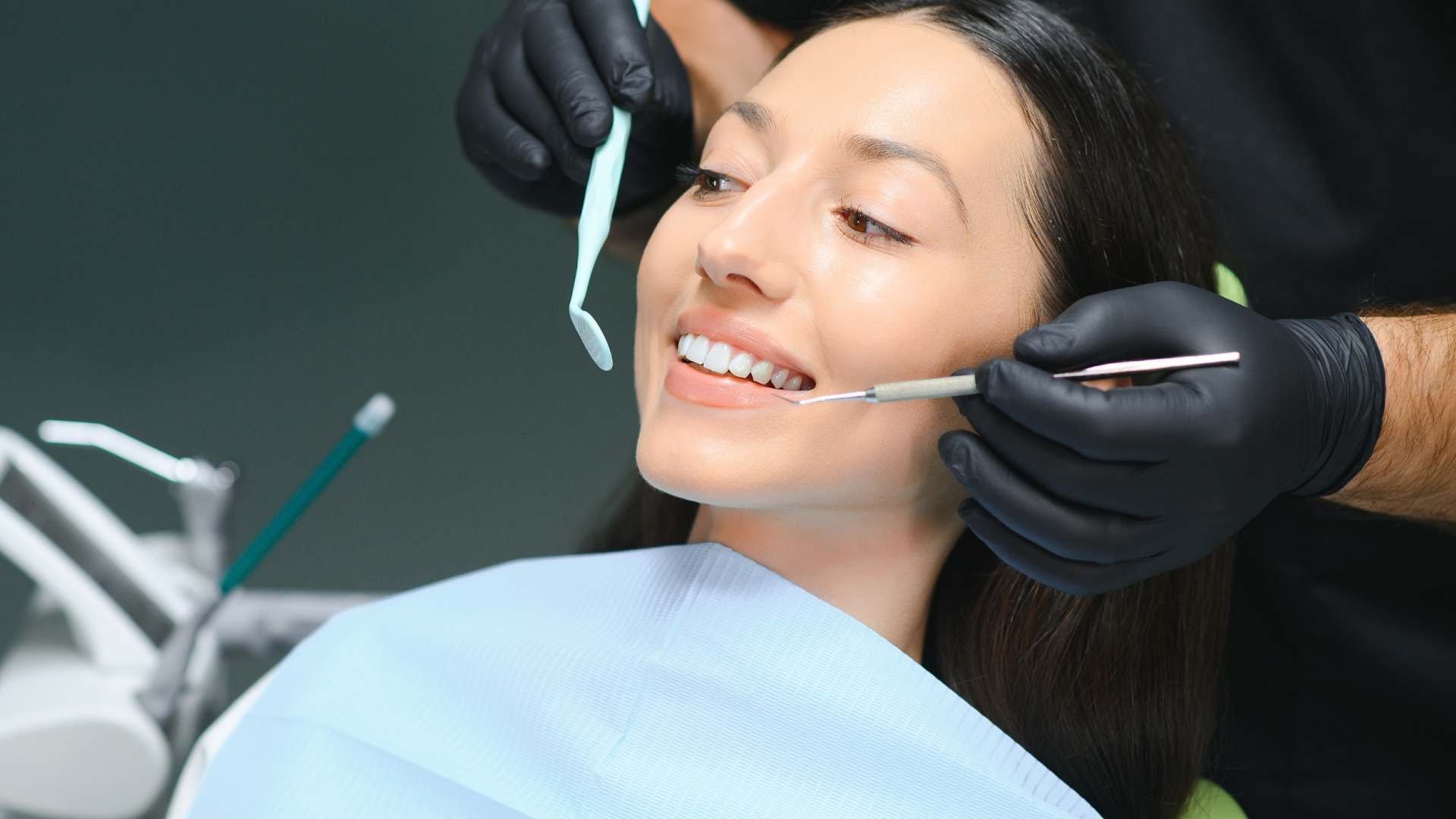Why No Dairy After Dental Implant?
Impact of Dairy Products on Dental Implants
Calcium Absorption
Following a dental implant procedure, the body’s need for calcium can increase to support the osseointegration process—the fusion of the implant with the jawbone. Dairy products are traditionally recognized for their high calcium content, which is essential for bone health. However, immediately after surgery, some of the best dentists Manhattan Beach recommend limiting dairy intake. This is due to the potential for dairy products to interfere with the healing process.
The presence of lactose and other sugars in dairy can lead to increased bacterial growth in the mouth, which may compromise the sterile environment necessary for optimal healing. Additionally, dairy products can sometimes be thick or sticky, posing a risk of irritating the surgical site.
- Opt for lactose-free milk or fortified non-dairy beverages to ensure adequate calcium intake without the risks associated with traditional dairy.
- Consider calcium-rich foods that are also low in sugar and less likely to promote bacterial growth.
It is crucial to maintain a balanced diet that supports recovery while minimizing complications. Consulting with healthcare professionals, including your dental team, can help tailor a post-operative diet that meets your nutritional needs.
Inflammation Risk
Dairy products, while generally considered beneficial for bone health due to their calcium content, may pose a risk of inflammation following dental implant procedures. The body’s response to surgery can be sensitive, and certain individuals may find that dairy exacerbates this inflammatory response.
- In the period immediately following the placement of a dental implant, it is crucial to manage inflammation to ensure proper healing. The best dentists Manhattan Beach recommend minimizing the intake of foods that could potentially increase inflammation, including dairy products.
Avoiding dairy immediately after dental implant surgery may contribute to a smoother recovery process and reduce the risk of complications.
- Monitor your body’s response to dairy.
- Consider temporary alternatives to dairy.
- Consult with your dental professional for personalized advice.
It is essential to prioritize your recovery by carefully selecting your diet to support the healing process and reduce the likelihood of inflammation.
Alternatives to Dairy After Dental Implant
Plant-Based Options
For individuals who have recently undergone dental implant surgery, it is crucial to find suitable dietary alternatives that support healing while avoiding dairy products. Plant-based options offer a wealth of nutrients that are essential for recovery without the potential complications associated with dairy consumption.
- Plant-based milks such as almond, soy, and oat milk are not only gentle on the dental implant site but also rich in vitamins and minerals.
- Soft tofu and well-cooked legumes can provide the necessary protein without straining the surgical area.
Ensuring a balanced intake of these alternatives can contribute significantly to the healing process, as recommended by the best dentists Manhattan Beach.
It is important to consult with healthcare providers to tailor a diet that meets individual nutritional needs while facilitating optimal dental implant integration.
Supplements
In the aftermath of a dental implant procedure, it is crucial to ensure that your body receives the necessary nutrients for optimal healing. While dairy products are traditionally recognized for their calcium content, they may not be suitable for everyone post-surgery. Supplements can play a pivotal role in filling nutritional gaps, especially when dairy is off the menu.
Best dentists Manhattan Beach often recommend a regimen of vitamin and mineral supplements to support bone health and immune function during the recovery period. Key supplements include:
- Calcium, to aid in the integration of the dental implant with the jawbone
- Vitamin D, to enhance calcium absorption and bone healing
- Magnesium, for its role in bone density and preventing inflammation
Ensuring an adequate intake of these supplements can significantly contribute to the success of your dental implant and overall oral health.
It is important to consult with your dental professional before starting any supplement routine to tailor it to your specific needs and to avoid any potential interactions with medications. A balanced approach to nutrition, including the consideration of supplements, is essential for a smooth recovery and the longevity of your dental implant.
Dietary Guidelines for Post-Implant Recovery
Soft Foods
Following a dental implant procedure, adhering to a diet of soft foods is crucial for ensuring proper healing and avoiding complications. Soft foods minimize the stress on the implant site, allowing it to integrate with the bone without undue pressure. The best dentists Manhattan Beach recommend a gradual transition back to a normal diet, starting with foods that require minimal chewing effort.
- Mashed potatoes
- Scrambled eggs
- Smoothies
- Applesauce
- Oatmeal
It is essential to maintain a balanced diet even when consuming soft foods to support overall health and the healing process. Avoiding spicy or overly hot foods can also prevent irritation to the implant site. As the site heals, more solid foods can be slowly reintroduced, always under the guidance of your dental professional.
Hydration Importance
Maintaining proper hydration is crucial for the healing process after receiving a dental implant. Adequate fluid intake supports the body’s recovery mechanisms, ensuring that the tissues around the implant site remain healthy and can heal efficiently.
Best dentists Manhattan Beach often advise patients to drink plenty of water post-surgery to minimize the risk of complications. Here are some reasons why staying hydrated is essential:
- It helps in flushing out toxins from the body.
- Water facilitates the transport of nutrients to the implant site, promoting healing.
- Proper hydration reduces the risk of infection by keeping the oral mucosa moist and intact.
Ensuring that you drink enough water is not just about quenching thirst; it’s about creating the optimal conditions for your dental implant to integrate successfully with your jawbone.
Avoiding Hard Foods
After a dental implant procedure, it is crucial to adhere to a diet that promotes healing and avoids complications. One of the most important dietary adjustments is avoiding hard foods. These can cause undue stress on the new implant, potentially leading to damage or displacement before the implant has fully integrated with the jawbone.
Best dentists Manhattan Beach often advise patients to steer clear of foods such as nuts, seeds, hard candies, and ice. These items can not only harm the implant but also irritate the surgical site. Instead, focus on consuming soft, nutrient-rich foods that are gentle on your mouth and beneficial for recovery.
- Soft fruits like bananas and peaches
- Well-cooked vegetables
- Scrambled eggs
- Smoothies and protein shakes
Ensuring that your diet is conducive to healing will significantly impact the success of your dental implant. Proper nutrition aids in faster recovery and reduces the risk of complications.
Frequently Asked Questions
Can I consume dairy products immediately after a dental implant procedure?
It is generally recommended to avoid dairy products immediately after a dental implant procedure to reduce the risk of complications.
How long should I wait before reintroducing dairy products into my diet after a dental implant?
Your dentist will provide specific guidelines, but it is advisable to wait until the initial healing phase is complete before reintroducing dairy products.
Are there specific dairy products that are more suitable for consumption after a dental implant?
Soft dairy products like yogurt may be easier to consume than hard cheeses or milk during the recovery period.
Will avoiding dairy products impact my calcium intake during post-implant recovery?
There are alternative sources of calcium available, such as fortified plant-based milks and supplements, to ensure adequate calcium intake during recovery.
Can dairy products cause inflammation around the dental implant site?
In some cases, dairy products can contribute to inflammation in the mouth, which may hinder the healing process after a dental implant.
How can I ensure proper nutrition without dairy products during post-implant recovery?
You can explore plant-based alternatives rich in nutrients, consult with a nutritionist for personalized recommendations, and consider calcium supplements to support your recovery.






